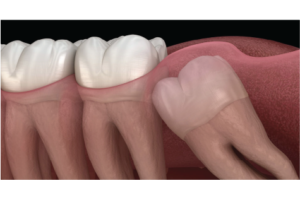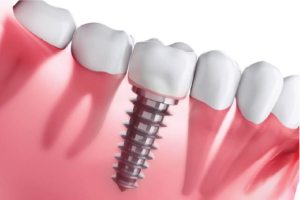Can diabetes affect your dental health?

India is now regarded as the world’s diabetes capital. According to a recent survey, there are 72.96 million estimated cases of diabetes in India. While most people are aware that diabetes can lead to heart disease, kidney failure and stroke, they’d be surprised to find out that it can affect the teeth and gums as well.
Emerging research suggests a two-way relationship between these two health issues. First, people with diabetes are more likely to have dental issues compared to people without diabetes. Secondly, severe gum disease can make it difficult to control blood sugar levels and contribute to the progression of diabetes.
Most common dental problems affecting diabetes patients:
Gum disease:
This is a chronic infection caused by bacteria collecting around the gums and teeth. Red, swollen, tender or bleeding gums, bad breath, teeth that begin to feel loose are some of the warning signs that indicate gum disease. It can result in loss of teeth.
Dry mouth:
Many people with diabetes also experience a lack of saliva, a condition known as dry mouth. This may result in ulcers, soreness, fungal infections and increased incidence of tooth decay. It may also result in difficulty in chewing, tasting and swallowing foods.
Fungal infections:
People with diabetes may have a greater chance of developing thrush, a fungal infection. Symptoms include painful white or red areas in your mouth.
Burning mouth syndrome:
This is a condition that causes burning feeling in the mouth without an obvious cause. The sensation can be usually felt on the tongue, roof of the mouth and lips.
Tooth decay:
The high level of glucose in saliva and dry mouth conditions create an ideal environment for increased incidence of dental cavities in patients with diabetes.
Poor healing of oral tissues:
Any trauma or injuries in the oral cavity do not heal quickly due to altered wound healing patterns.
How can gum disease impact diabetes control?
Researchers believe that when bacteria enter the mouth and cause inflammation, the resulting chemical changes decrease the potency of insulin. This can make it harder for diabetics to regulate their blood sugar level, sometimes despite taking medication.
Oral health tips if you have diabetes:
- Maintain good oral hygiene by brushing twice a day and flossing once a day. Use an alcohol-free mouthwash.
- Track your glucose levels. Follow the instructions of your physician to keep the blood sugar level within the target range.
- If you suspect that any of your medicines cause symptoms of dry mouth, talk to your physician or dentist to find out if there is any alternative medicine.
- Drink plenty of water and chew sugar-free gums to avoid dry mouth.
- Provide a history of medical and oral health to your physician and dentist. Your dentist will postpone non-emergency treatment if your blood glucose levels are high.
- Do take dental appointments in the morning because, at this time of the day, blood glucose levels tend to be better controlled. If you have scheduled an appointment, eat and take your medications as directed.
- Treat dental infection immediately. Get your teeth and gums checked and cleaned twice a year.
- If you wear dentures, make sure you remove and clean them daily.
- If you’re wearing braces, contact your orthodontist immediately if a wire or bracket leads to a cut inside your tongue or mouth.
- Quit smoking. It will reduce the risk of dry mouth and gum disease.
When you have diabetes, high blood sugar levels can take a toll on your entire body. Diabetes management is a lifelong commitment that also involves adequate dental care. Your efforts will be rewarded with healthy teeth and gums throughout your life.
Be wise about your wisdom teeth
Be wise about your wisdom teeth One major dental milestone...
Read MoreHow to take care of your dental implants
How to take care of your dental implants? Dental implants...
Read MoreCan diabetes affect your dental health
Can diabetes affect your dental health? India is now regarded...
Read MoreWhy is dental hygiene important during covid-19 pandemic
WHY IS DENTAL HYGIENE IMPORTANT DURING COVID-19 PANDEMIC? Hygiene is...
Read More
Dr. Paresh Lotlekar is a leading dental practitioner specialising in Periodontology & Oral implantology and the founder of STUDIO32 (studio32india.com), a chain of super speciality dental clinics in Goa.





